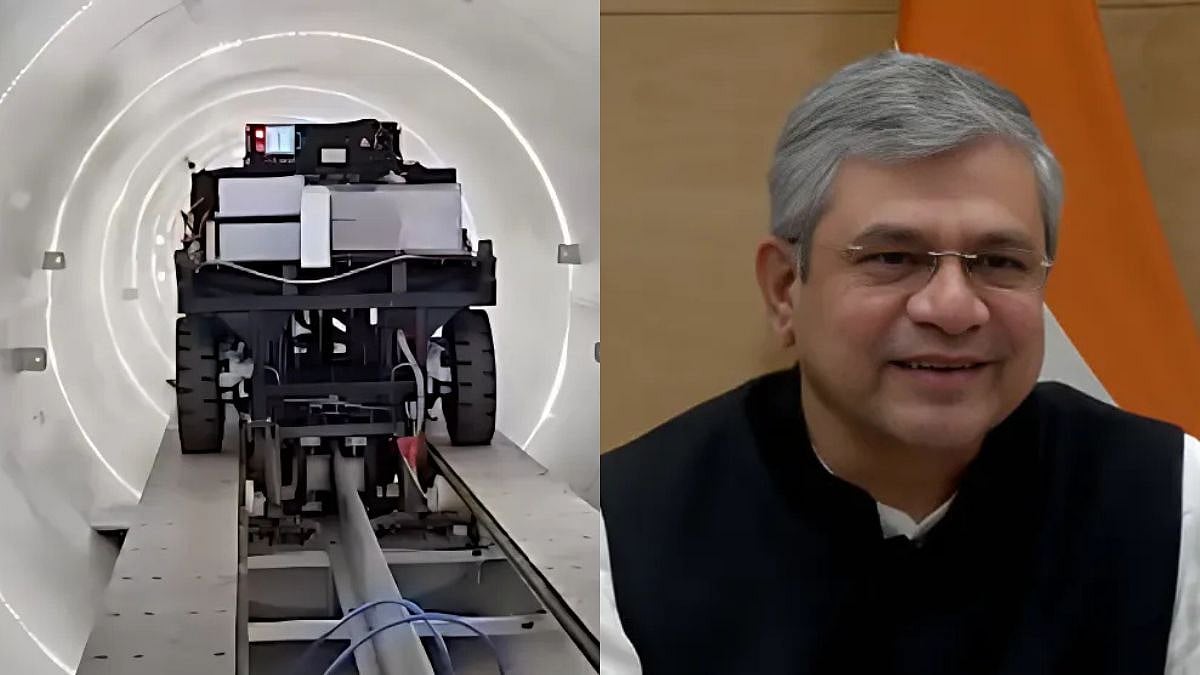Hyperloop track test ready to run between Delhi to Jaipur | Screengrab, X (@AshwiniVaishnaw)
IIT Madras, with support from the Ministry of Railways, has constructed a 422-meter test track for India’s first hyperloop system, enabling a travel distance of 350 km in just 30 minutes. This means, for instance, that one can travel from Delhi to Jaipur, roughly 300 km apart, in under thirty minutes. The project, funded by the Ministry of Railways, is situated on the IIT Madras campus, where railways are poised to launch their first commercial endeavor soon.
Hyperloop, termed the ‘fifth mode of transport,’ is a high-speed transit system designed for extensive travel. It employs pods traveling in vacuum tubes, boasting extremely high speeds with minimal friction and air resistance. An official announcement mentioned that these pods can potentially reach speeds up to Mach 1.0—approximately 761 miles per hour at sea level.
The project, funded by the Ministry of Railways, was built at the IIT Madras Campus. Elated with the results, Vaishnaw said, “The first pod of 422 meters will go a long way in developing technologies. I think the time has come when, after the first two grants of one million dollars each, the third grant of one million dollars will be given to IIT Madras for further developing the hyperloop project.”
On December 5, the Union Railway Minister showcased on X (formerly Twitter) the completion of the 410-meter Hyperloop test track, signifying a major leap in India’s high-speed transport ambitions.
This track at IIT Madras’s Discovery Campus in Thaiyur is the result of a collaborative effort involving Indian Railways and the Avishkar Hyperloop team from IIT Madras, along with TuTr Hyperloop, a startup from the institute.
The Minister commended the team for their innovative contributions, expressing optimism for the future of Hyperloop technology in India. The Hyperloop team aims to develop efficient, affordable, reliable, and sustainable high-speed transportation, with the Ministry of Railways being instrumental in this initiative. Following its maiden run at 100 km/h, testing on the extended track will strive for speeds nearing 600 km/h.
